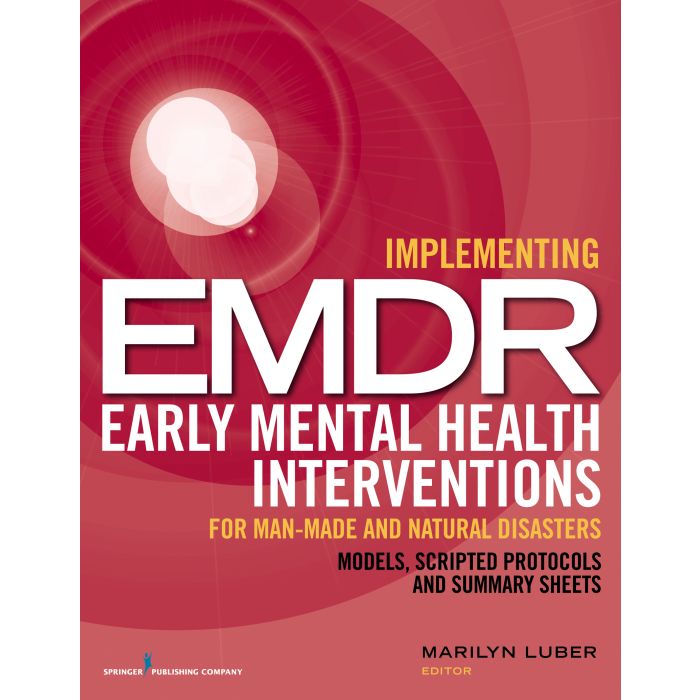Early psychological intervention following recent trauma: A systematic review and meta-analysis
Early psychological interventions aim to prevent chronic difficulties. Findings for CBT-T, EMDR, and cognitive therapy without exposure were judged as clinically important.
Article Abstract
“Background: Post-traumatic stress disorder (PTSD) is a common and debilitating disorder which has a significant impact on the lives of sufferers. A number of early psychological interventions have been developed to try to prevent chronic difficulties.
Objective: The objective of this study was to establish the current evidence for the effectiveness of multiple session early psychological interventions aimed at preventing or treating traumatic stress symptoms beginning within three months of trauma exposure.
Methods: Randomized controlled trials of early multiple session psychological interventions aimed at preventing or reducing traumatic stress symptoms of individuals exposed to a traumatic event, fulfiling trauma criteria for an ICD or DSM diagnosis of PTSD were identified through a search of the Cochrane Common Mental Disorders Group Clinical Trials Registers database, the Cochrane Central Register of Controlled Trials, MEDLINE, Embase, PsycINFO and PILOTS. Two authors independently extracted study details and data and completed risk of bias assessments. Analyses were undertaken using Review Manager software. Quality of findings were rated according to ‘Grades of Recommendation, Assessment, Development, and Evaluation’ (GRADE) and appraised for clinical importance.
Results: Sixty-one studies evaluating a variety of interventions were identified. For individuals exposed to a trauma who were not pre-screened for traumatic stress symptoms there were no clinically important differences between any intervention and usual care. For individuals reporting traumatic stress symptoms we found clinically important evidence of benefits for trauma-focused cognitive-behavioural therapy (CBT-T), cognitive therapy without exposure and eye movement desensitization and reprocessing (EMDR). Differences were greatest for those diagnosed with acute stress disorder (ASD) and PTSD.
Conclusions: There is evidence for the effectiveness of several early psychological interventions for individuals with traumatic stress symptoms following trauma exposure, especially for those meeting the diagnostic threshold for ASD or PTSD. Evidence is strongest for trauma-focused CBT.”
—Description from publisher
Article Access
Purchase/Subscription Required
Roberts, N. P., Kitchiner, N. J., Kenardy, J., Lewis, C., & Bisson, J. I. (2019). Early psychological intervention following recent trauma: A systematic review and meta-analysis. European Journal of Psychotraumatology, 10(1), 1695486. Open access: https://doi.org/10.1080/20008198.2019.1695486
About the Journal
“The European Journal of Psychotraumatology publishes research on how to understand, prevent and treat the consequences of stress, trauma and violence.”
—Description from publisher
Date
December 6, 2019
Creator(s)
Neil P. Roberts, Neil J. Kitchiner, Justin Kenardy
Contributor(s)
Catrin E. Lewis, Jonathan I. Bisson
Practice & Methods
EMDR Early Intervention
Extent
25 pages
Publisher
Taylor & Francis
Rights
© 2019 The Author(s). Published by Informa UK Limited, trading as Taylor & Francis Group.
This is an Open Access article distributed under the terms of the Creative Commons Attribution-NonCommercial License (http://creativecommons.org/licenses/by-nc/4.0/), which permits unrestricted non-commercial use, distribution, and reproduction in any medium, provided the original work is properly cited.
APA Citation
Roberts, N. P., Kitchiner, N. J., Kenardy, J., Lewis, C., & Bisson, J. I. (2019). Early psychological intervention following recent trauma: A systematic review and meta-analysis. European Journal of Psychotraumatology, 10(1), 1695486. Open access: https://doi.org/10.1080/20008198.2019.1695486
Audience
EMDR Therapists, Other Mental Health Professionals
Language
English
Content Type
Article, Meta-analyses/Systematic Reviews, Peer-Reviewed
Access Type
External Resource, Open Access





